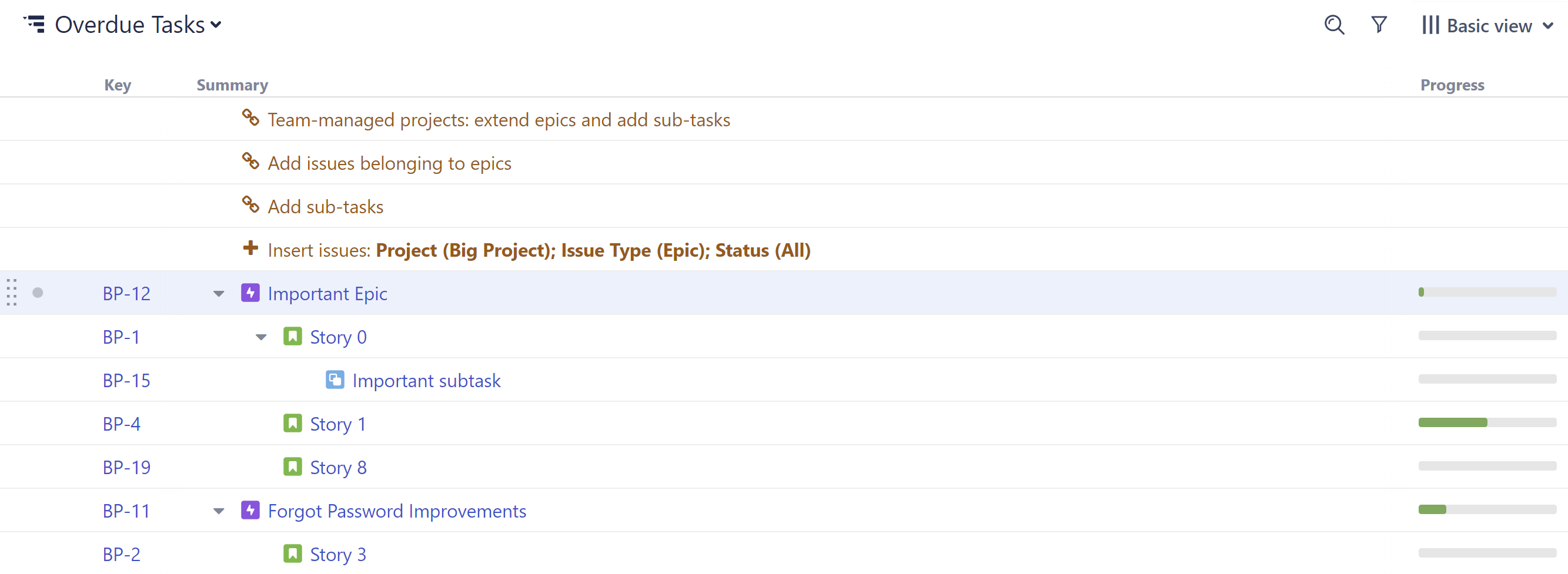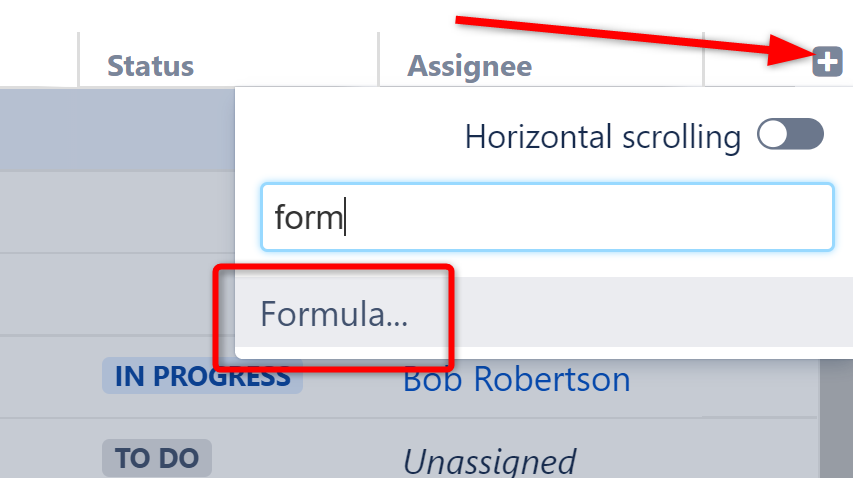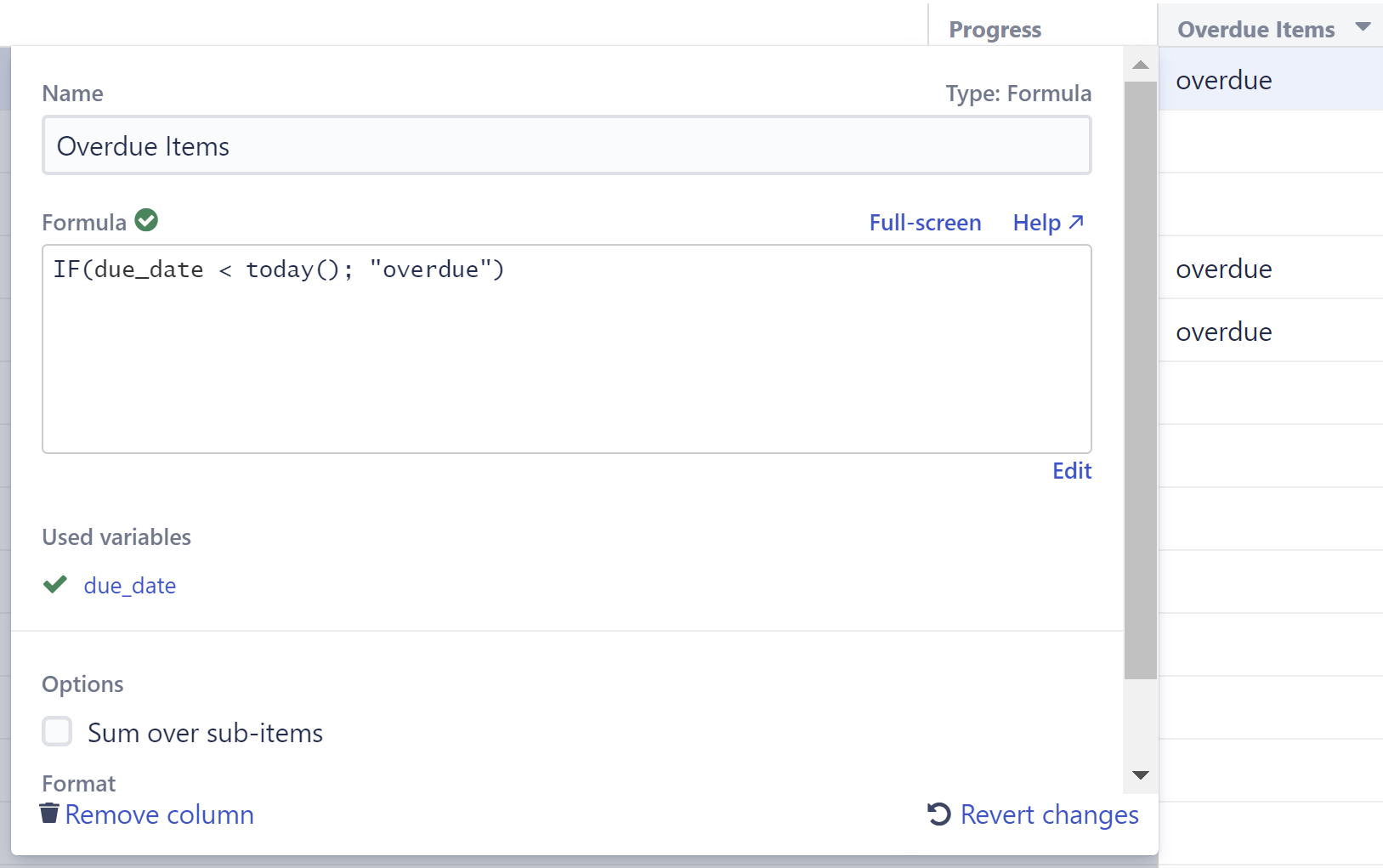Track Overdue Tasks with Structure
Use Structure to identify:
- Overdue tasks
- Number of overdue tasks per epic, initiative, or other larger grouping
Step 1: Build Your Structure
In this guide, we're going to show you how to track overdue tasks at the epic level. To track overdue tasks for initiatives or any other large groupings, simply reconfigure the structure hierarchy - this can be done using a Preset or Insert, Extend, and Group generators.
To create a new structure using a Preset:
- Open the Structure Selector menu and select Create New Structure
- Automatically build an Epic > Story > Sub-task hierarchy: +Add | Preset | Agile Hierarchy
To create a new structure using Insert, Extend, and Group generators:
- Open the Structure Selector menu and select Create New Structure
- Add epics: +Add | Insert | Basic Insert | open the Issue Type dropdown and select Epic
- To limit the epics to specific projects, use the Projects dropdown
Add stories and sub-tasks: +Add | Insert | Child Issues | under Add, select Issues under epics and Sub-tasks.

Step 2: Mark Overdue Tasks
Once you have your structure in place, the next step is to identify all the overdue items. To do this, we need to add a formula column. Click the + button to the right of the column headers, and select Formula.  Give the column an appropriate name and enter the following into the Formula section:
Give the column an appropriate name and enter the following into the Formula section: IF(due_date < today(); "overdue")
Variations
This is just one way to mark overdue items. You could also:
- Create a more visual warning that highlights not only overdue items, but also items coming due. You can read how to do this in Markdown in Formula Columns.
- Create a formula that relies on another due date. For example, you may want to flag issues that aren't completed by the due date of their parent epic. In this case, change the formula to:
IF(type = "Story" and status != "Done" and parent{due_date} < today(); "overdue")
Step 3: Aggregate Overdue Items for Epics, Initiatives, etc.
In the previous example we were simply returning the string “overdue”, but if we give that "overdue" flag a numeric value ("1"), we can use the Sum over sub-items option to aggregate those values up the hierarchy. To accomplish this:
- In place of the formula we created in step 1, enter the following:
IF(type = "Story" and status != "Done" and due_date < today(); 1) - Check the Sum over sub-items box
